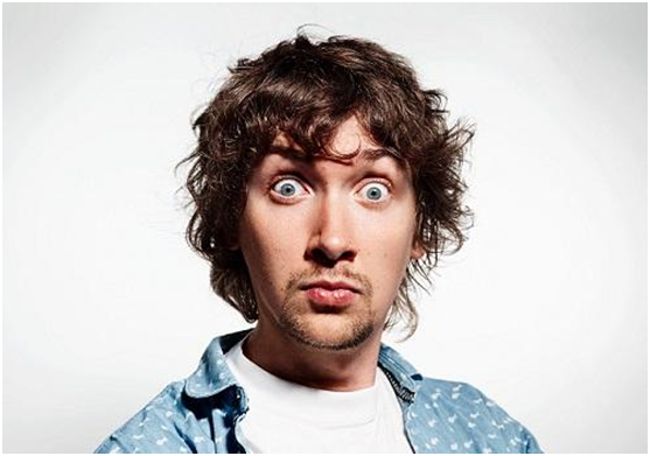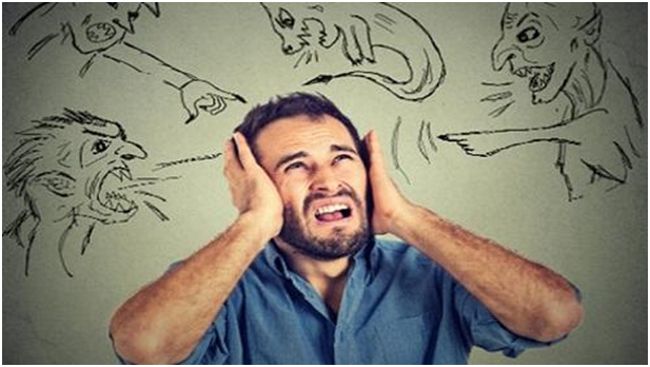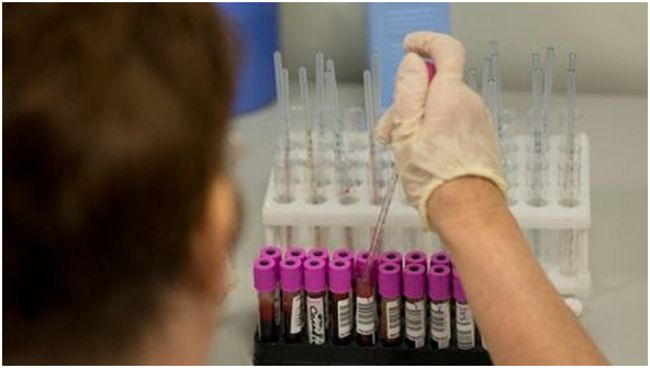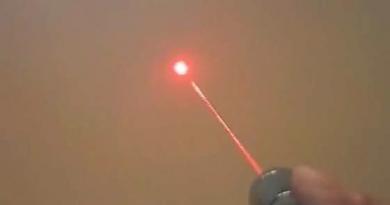Schizophrenia is considered perhaps the most famous of all mental illnesses. If we hear that a person has “lost his mind”, then we almost always mean an attack of schizophrenia, and for the first time this ailment was described back in the 17th century BC. But at the same time, many aspects of the disease still remain poorly understood, although modern science was still able to reveal some of the secrets of schizophrenia.
So, schizophrenia is a severe mental illness, accompanied by a gradual disintegration of personality, emotions and thought processes. The characteristic symptoms of the disease are delusions and hallucinations, when a person sees or hears something that does not exist in reality.
A schizophrenic is a person suffering from schizophrenia. This term has a somewhat pejorative meaning, therefore it is used most often in everyday life, and very rarely in medicine.
By the way, quite a lot of people suffer from schizophrenia - about 4-6 people for every thousand of the population. Some of them have an official diagnosis, receive treatment and are observed by a psychiatrist. But there are also latent, undiagnosed cases that remain so for a long time, usually until the first psychosis, which can develop in a patient several years or even decades after the onset of the disease.
Modern science has not yet been able to unambiguously answer why people get schizophrenia. There are several well-defined factors that certainly affect the risk of developing the disease, but it is still far from fully unraveling all the mysteries of schizophrenia.
One of the main reasons for the development of the disease is considered a genetic factor. At the same time, the inheritance pattern of the disease is not linear, but is encoded by several genes at once. Therefore, it is impossible to say for sure which of the family, where cases of the disease have already been noted, will also develop schizophrenia. The presence of sick relatives significantly increases the likelihood of manifestation of the disease in their descendants, but only by a few percent.

Vivid emotional experiences, stress, serious illnesses and injuries are also commonly attributed to the reasons why schizophrenia occurs. But all these facts are more likely to be triggers - that is, they trigger the development of the disease if a person is initially predisposed to it.
In fact, a schizophrenic is a person who has certain features of the functioning of the brain. Diagnosis using MRI has helped modern scientists to determine that a patient with this disease has an activity of some parts of the brain that is atypical for healthy people (for example, a decrease in blood flow to the frontal lobes of the organ, etc.). True, some doctors suspect that this may be a consequence of taking drugs, and research on this topic has not yet been completed.
Signs of the disease
The symptoms and signs of schizophrenia can be very varied. The disease does not always begin brightly and unambiguously - some of its types can proceed for years in a blurred and implicit form.
The first signs of schizophrenia are easily confused with character traits or a person's reaction to some events in his life. The severity of emotions gradually decreases in a person, he becomes, as it were, insensible, apathetic. Throws former hobbies and interests, strives for loneliness, rarely leaves the house. One of the first signs of the development of the disease may be increasing anxiety, sudden aggression, and sudden mood swings in the patient.
Gradually, a sick person loses interest in his own appearance, order in the house - he may not wash and clean for months, walk for weeks in the same dirty clothes.
Often these symptoms develop long before the onset of the disease. Scientists have even created a "psychological portrait" of those people who are most susceptible to schizophrenia. Usually, potential patients are reserved, suspicious, they do not like to share their experiences.

Specialists distinguish between positive and negative symptoms of schizophrenia. The first ones include:
- hallucinations;
- rave;
- thought disorders.
As a rule, bright positive symptoms are shown at development of acute psychosis within schizophrenia.
More details on the video: how schizophrenics see the world, vivid manifestations of delusions and hallucinations in this disease
Negative symptoms in schizophrenia:
- poverty of speech;
- anhedonia (loss of ability to receive pleasure);
- emotional dullness;
- loss of motivation;
- immersion of the patient in "his world".
The speech of a schizophrenic can be fast and incoherent, or vice versa - slow. For some forms of the disease, attacks of catatonic stupor are characteristic, when the patient freezes in one position for a long time.
Symptoms and signs of the disease also include:
- various phobias, often completely irrational;
- obsessive thoughts and movements;
- split personality;
- bizarre health complaints (hypochondriac syndrome);
- simultaneous sensation of two polar emotions (ambivalence);
- insomnia and other sleep disorders;
- loss of interest in food or vice versa - the desire to constantly eat something;
- lack of logic in words and actions.
Schizophrenia is a rather complex disease with many different manifestations. Different forms of the disease can differ greatly in their main features, so it is not possible to list all possible variants of symptoms within the framework of one article.
How to recognize a schizophrenic?
Many people are concerned about how to recognize a schizophrenic without being a psychiatrist. This issue is especially relevant for representatives of those families in which cases of the disease have already been recorded - in this case, manifestations of the disease can occur at any time in any of the relatives.
There is no universal method for determining schizophrenia in a person. Even a doctor, in order to make this diagnosis, needs some time to observe the patient, carefully collect an anamnesis, and analyze the patient's behavior.

However, if a person or relative you know gradually loses interest in life, becomes sloppy, speaks only in simple words (his speech becomes poor and unemotional), you should definitely pay attention to this, since these behaviors can be early signs of schizophrenia.
When an acute attack of the disease develops, the problem no longer arises of how to recognize schizophrenia - hallucinations and delusions leave no doubt that a person needs urgent psychiatric help.
Important! If your family has already had cases of this disease, then you definitely need to know what schizophrenia is and how it manifests itself, what are the clinical signs of psychosis, how an attack of schizophrenia begins, which causes an exacerbation of the disease. This information will help you not to miss the symptoms of the onset of the disease and start treatment on time.
Why do schizophrenics look younger than their years?
Another interesting question that can often be found on forums on the Internet. Indeed, some patients have a rather attractive appearance, look younger than their actual age.
This is explained quite simply - chronic schizophrenia is characterized by a poverty of emotions and very weak facial expressions, which is why age-related wrinkles practically do not appear on a person's face.

But this does not apply to all patients. For example, those who abuse alcohol (which is also a consequence of the disease) look not younger, but much older than their years.
Also, the appearance of the patient to some extent depends on the age at which schizophrenia manifested itself. If an ailment strikes an elderly person, then most likely, his appearance will not change much (for good or bad) under the influence of the disease, and the patient will no longer look younger.
How to become a schizophrenic?
It would seem a stupid question, but many people (especially young people) ask it almost in all seriousness. Someone wants to avoid being drafted into the army (read if they are compatible), someone likes pictures painted by sick people, and still others want to experience for themselves how schizophrenics behave, what drives their actions and what reality surrounds them.
But this is just the case when you should not tempt fate. Artificially falling ill with schizophrenia is not possible, and the simulation of the symptoms of the disease will not lead to anything good. Even if someone (purely theoretically, because it is extremely difficult to deceive experienced doctors) manages to receive such a diagnosis, it will be extremely difficult to remove it later. And this means that the imaginary patient "does not shine" either a good job or the opportunity to get a driver's license ... not to mention the negative consequences of taking serious drugs that suppress brain function. For patients, therapy is an unconditional benefit, for a healthy person it is quite the opposite.
Diagnostics
Modern psychiatry does not fully know where this disease comes from, but in terms of its diagnosis, doctors have made significant progress. As a rule, the patient gets an appointment with the doctor after the onset of the disease, when the signs of schizophrenia become apparent. But the mere presence of delusions and hallucinations in a patient is not a basis for making a diagnosis, since many other mental illnesses and disorders can also have similar symptoms - therefore, differential diagnosis is of great importance.
To do this, the psychiatrist determines when the clinical signs of the disease first appeared, what diseases are in the anamnesis, observes the patient for a rather long period to make sure that the alleged diagnosis is indeed correct.

Also, the patient undergoes a complete examination of the body in order to exclude the organic nature of the development of mental illness. In some diseases, brain damage can occur, which causes symptoms that are very similar to those of schizophrenia - but at the same time this condition has nothing to do with it.
For diagnostics, various methods are used - testing, working with pictures (), cards, drawing up logical chains, and so on. The world through the eyes of a schizophrenic looks completely different than that of healthy people, so even "children's" tasks (such as those where you need to combine drawn objects according to some sign) make it possible to suspect schizophrenia in adults.
Periodically, in the press you can read about new methods for diagnosing this disease. For example, in 2012, scientists at the University of Aberdeen published the results of a study of a new way to determine the disease, which allows you to correctly diagnose in 98% of cases. Scottish doctors figured out how to determine schizophrenia by eye movement - it turned out that the gaze of a schizophrenic cannot fully follow a slowly moving object, periodically "lags behind" it and then "catches up" as if by a jerk.
But such diagnostic methods have not yet found wide application in the world, although developments have been going on for a long time.
How to know if you have schizophrenia
Can a schizophrenic understand that he is ill? Of course - yes, and such cases are described in medical and fiction, and even on the Internet. A person who at least roughly knows how schizophrenia manifests itself is able to suspect that his condition is clearly different from the norm.
Of course, for this it is necessary that "enlightenment" occurs in the patient's state. Acute psychosis or complete immersion in oneself does not give a person a chance to realize his problem - a schizophrenic sees that the world around him has changed beyond recognition, but does not understand what exactly happened.

Separately, it is worth mentioning the tests and optical illusions, which supposedly can help each of us make sure that there is no (or presence) of a mental illness. In fact, such a “diagnosis” is nothing more than pampering and a way to kill time. A correctly completed table or a correct definition of what the figure in the figure means cannot indicate the presence or absence of schizophrenia in a person - a comprehensive examination of the patient is required to confirm the diagnosis.
Why is the patient dangerous to society?
Are schizophrenics dangerous to people around them? Actually, not always. Many patients do not show signs of aggression at all, even in a state of severe psychosis. But there are cases when, under the influence of delusions and visions, a schizophrenic can attack other people and even commit murder (and more than one).
To minimize the risk of such behavior, the patient should regularly visit the attending physician, go to the hospital if necessary, and carefully take all prescribed drugs.
As a rule, taking medication completely stops possible outbreaks of aggressiveness, but only if the dose and the medications themselves are chosen correctly.
Treatment
The only effective method of treating this disease is taking medications - neuroleptics, antidepressants, anticonvulsants. In some cases, such treatment is prescribed for life, and during the period of remission, the patient also drinks drugs at a maintenance dose.

It is widely used for the treatment of schizophrenia and psychotherapy - cognitive behavioral, psychoanalysis, art therapy and so on. However, unlike neurosis, mental illness is not cured by talking with a psychotherapist, in this case, such treatment is purely supportive.
For more information, read the relevant material on our website.
Disease prevention
Since it is still unknown what causes schizophrenia, specific prevention also does not exist. If desired, any person can undergo medical genetic counseling to find out their approximate chances of developing an illness.
Certainly useful in any genetic scenario will be the observance of the rules of a healthy lifestyle. Alcohol abuse, drug use, irrational work and rest regime - all these factors undermine the nervous system, and can lead to the onset of the disease (if a person already has the appropriate genes).
Another risk factor is chronic and acute stress, which can also trigger the onset of schizophrenia. To reduce the influence of negative factors on the psyche, every sane person should periodically visit a psychologist or psychotherapist. Such activities will help to cope with any stresses and setbacks in life, reducing the likelihood of developing serious diseases.
It is also necessary to regularly undergo a medical examination, and not formally, but in good faith. Medical examinations with the participation of many narrow specialists can reveal ailments (including mental ones) in the early stages, when a person does not yet suspect that he is sick.

Conclusion
In this material, we tried to tell as broadly as possible, but at the same time more clearly, what it is - schizophrenia, who is a schizophrenic, whether patients with this disease are dangerous for society and how to prevent negative consequences if the diagnosis has already been made. Of course, these are very general data, but they will be very useful for those people who want to know everything about this disease and what the concept of "schizophrenia" includes from the point of view of science and medicine.



